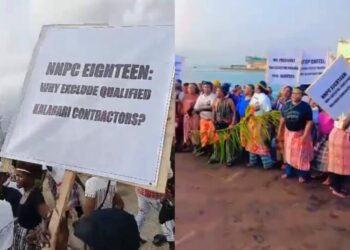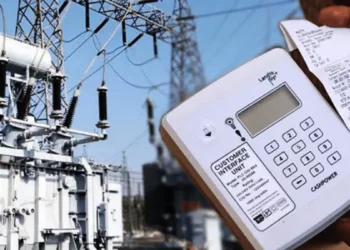Maritime stakeholders have lamented the return of the Standard Organisation of Nigeria (SON) to the nation’s seaports, saying, this development will frustrate cargo clearance.
The stakeholders had argued that with the e- customs modernisation project, there was no need for the federal government to grant approval for SON to return to the seaport, noting that the return will increase the cost of doing business as well as promote sharp practices.
Speaking, the president African Association of Professionals Freight Forwarders and Logistics of Nigeria (APPFLON), Otunba Frank Ogunojemite, stated that SON’s return to the port will sabotage the ease of doing business initiative of the federal government.
According to him, SON’s return will further increase congestion, cargo dwell time and vessel turn around time.
He said, “In my opinion, SON is coming to the port to sabotage the essence of a single window and that’s one of the parameters International Monetary Find (IMF) uses in evaluating port operations in Nigeria. I will advise that SON should emulate NAFDAC by having engagement with the country of origin where a product is coming from and through that sub-standard goods can be curtailed without necessarily having them to be at the seaports because at the end of the day, if they begin to operate at the port, it will increase congestion, waste the time and resources of port operators.
“Also we are talking of Cargo Tracking Note, which means that all the goods in a container will be known before their departure from the country of origin to the country of use, so on what basis is SON return to port necessary or what purpose are they coming to do? We should be thinking of streamlining the agencies at the port.
“More so if SON returns back to the seaport it will increase the sharp practices because by the time they return, there will be sharp practices because there will be human contacts, but if we make use of technology just like we are talking about the single window all these things will be eliminated and will reduce the cost of clearance of goods.”
Speaking also, the National secretary of the Association of Nigerian Licensed Customs Agents (ANLCA), Babatunde Mukaila, argued that SON has never left the port, even despite the government directive for them to leave.
He said the agency still carry out inspection, and collect inspection fees despite being asked to leave the port.
He, however, said with the new pronouncement from the federal government for them to return to the seaport, road blocks inspection carried out by the agency outside the port should stop.
“I am not part of those that believe SON ever left the port, because they still do inspections even when they are outside the port and will always have their inspection report before exiting the port, but if they are returning permanently, all we need to do is to sit down with them on how they can facilitate trade and if there is any reason for them to suspect any cargo, let them exit it out of the port to the importers’ warehouse,” he said.
Similarly, the chief executive officer, Center for the Promotion of Private enterprise (CPPE), Dr Muda Yusuf, described the situation as one that poses a kind of dilemma while advocating for the use of technology as a permanent solution to cargo examination at the ports.
He said, “The matter poses a kind of dilemma, the SON has complained severally that over 80% of substandard products that get into the country come in through the seaport and by the time they were leaving the port, I think the arrangement was that the Customs will invite them anytime there is a cargo containing regulated products so that they can be on the ground to properly examine it, but I am not sure that arrangement has been working. They have complained that they are not been invited and that some of these containers are released without them being invited.
“Now on the side of the stakeholders, they are also saying there are too many agencies at the port and that this make cargo clearing also extremely difficult, so I think the way out of this, is for us to make use of technology, like the single window, that will go a long way, so that everything that is coming into the country will be seen by every operator.”





